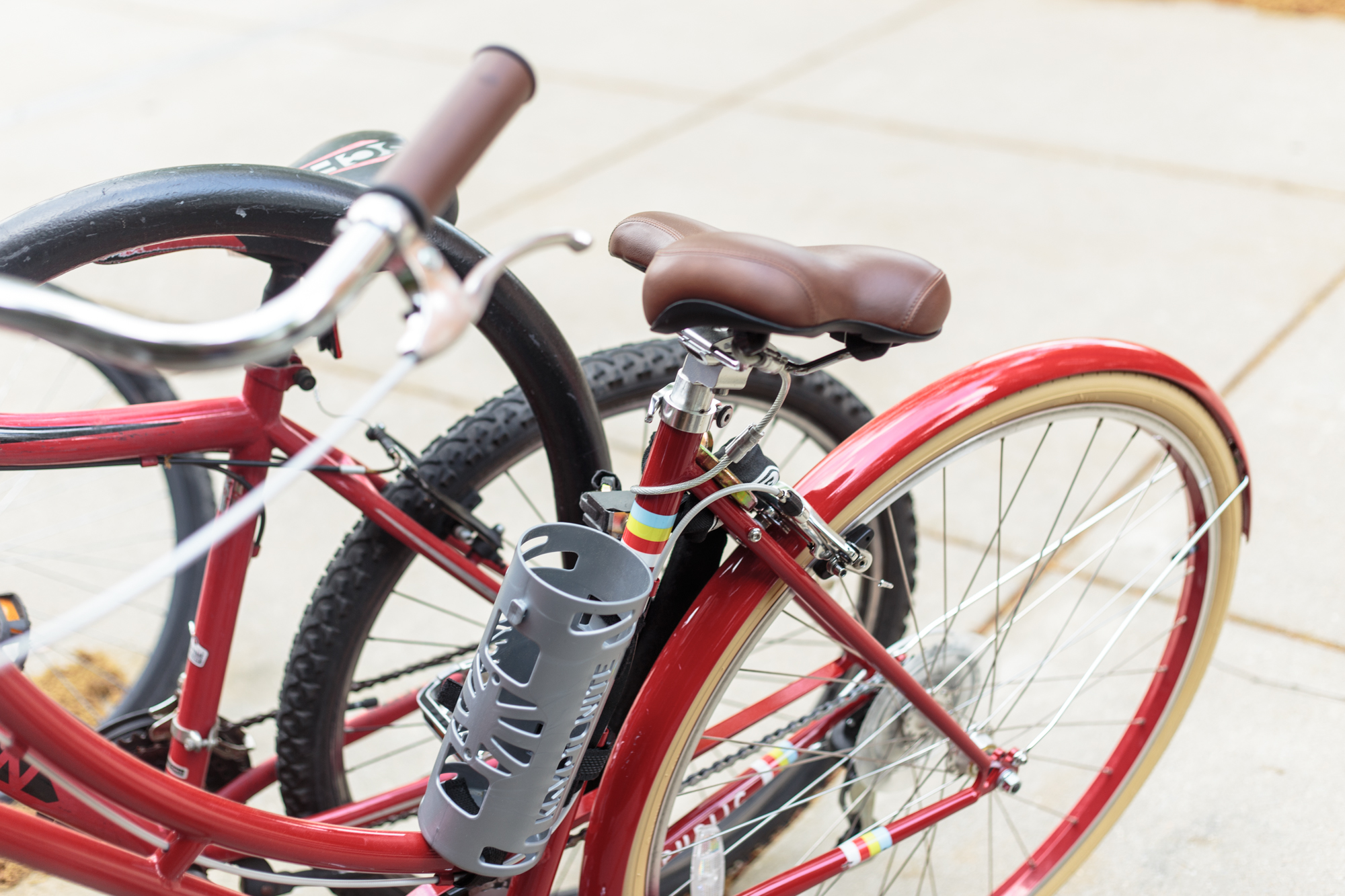Although the city of College Park and the University of Maryland are preparing to launch a joint bike-share program next week, a similar system called Baas Bikes has started to gain traction on the campus without collaboration with the other two entities.
Baas Bikes is “the future of on-demand bikes,” and was launched at this university on April 16, founder and CEO Rob McPherson said. The company’s bikes utilize Bluetooth-sharing technology, which enables a user to unlock a bike using the Baas Bikes smartphone app on their phone and rotate the bicycle seat, which is sideways when locked.
The bikes cost $1 per hour, but can be reserved for longer periods of time or returned through the app. The program has 40 bikes available, McPherson said. Baas Bikes has already registered 200 users — half of which ride a bike the same day they sign up, said Justin Molineaux, CTO of Baas Bikes.
“It can be locked to any bike rack around campus, and with multiple bikes, you can kind of create this virtual bike-share concept where anybody with the app has access to our system,” McPherson said.
This university and the city announced their bike-share program last month — which is in collaboration with the bike-sharing company Zagster — but it won’t interfere with Baas Bikes, Molineaux said.
“We might not even see each other because the market is so big, so it’ll be a while before either company has enough market share that there will be real competition,” he said. “I think College Park could really sustain several bike-shares simultaneously.”
Anna McLaughlin, the Department of Transportation Services spokeswoman, said the department has received several questions about Baas Bikes and is trying to find out more information about the company.
“If they are a private company that is charging money and using campus resources to operate, there needs to be an established relationship,” McLaughlin said. “They can’t just come on campus, just like any vendor wouldn’t be able to come on campus and sell things. They need to first have a relationship with the university.”
Neither party has reached out to the other about a possible relationship, Molineaux said.
“We’re not endorsed by the university, but the university has also not said, ‘Don’t do what you’re doing,'” Molineaux said. A bike-share program is technically not allowed without the university’s permission.
McPherson and Molineaux teamed up in October and began testing the bikes in January in Florida, Molineaux said. The program has used student interns to drive marketing efforts, he said.
“We want this to be ultimately a student-marketed system, so what we created was this internship program for a bunch of students where they could kind of learn how to start a technology business and what goes into that from the marketing side,” McPherson said.
Elijah Chanakira said he and the other 25 or 30 interns have primarily used Facebook to advertise the company.
“We’ve offered input on how to improve the bikes and how to reach a larger market, and we’re the ones who are spearheading marketing through the bikes,” the freshman computer science major said.
Tyler Dolchan, a freshman enrolled in letters and sciences and one of the student interns, said he doesn’t think Baas Bikes will suffer when the university bike-share is launched. Regardless, the company is gathering data to ensure that their efforts are worthwhile, Molineaux said.
“Baas Bikes is very competitive. You don’t need to pay a subscription … you really only pay if you want to ride the bike,” Dolchan said.



